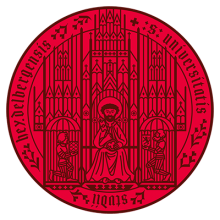A leading German geneticist has been named the new president of the European Research Council (ERC).
Maria Leptin, who has been director of the European Molecular Biology Organisation (EMBO) since 2010, will take on the new role in October when the council’s interim president, Jean-Pierre Bourguignon, steps down.
His appointment followed Mauro Ferrari’s short-lived term of office at Europe’s most prestigious research funder. The Italian-American researcher quit in April 2020 just four months after taking office, in a row over whether the ERC should establish a special Covid-19 programme.
The appointment of Professor Leptin, who currently leads research groups at the European Molecular Biology Laboratory (EMBL) in Heidelberg and the University of Cologne, comes at the start of the new seven-year Horizon Europe programme, during which the ERC will receive €16 billion (£14 billion), a 22 per cent increase on the previous framework.
Mariya Gabriel, the European Commission’s commissioner for innovation, research, culture, education and youth, described Professor Leptin as the “the right choice for this task, given her distinguished academic career, international renown, and proven record of innovation and leadership”.
As well as working in Cologne and Heidelberg, Professor Leptin has also worked in Switzerland – taking her PhD at the Basel Institute for Immunology – and the UK, where she was a postdoctoral fellow and later staff scientist at the Laboratory of Molecular Biology in Cambridge. She has also been a visiting scientist at the University of California, San Francisco, where she began her work on gastrulation, which became her core research interest at the Max Planck Institute for Developmental Biology in Tübingen, Germany, where she worked as group leader from 1989 to 1994.
The 67-year-old scientist has also spent sabbaticals as a visiting professor at the École Normale Supérieure, Paris, and as visiting scientist at the Wellcome Trust Sanger Institute, near Cambridge.
Her appointment was also welcomed by the ERC’s scientific council, who said her “strong scientific and managerial backgrounds, her long-term involvement with European issues, her pioneering role in the scientific community and her familiarity with European institutions are all highly appreciated”.
“Her strong leadership will be essential in ensuring that frontier research continues to play a central role in the Horizon Europe framework programme, and that the ERC makes good use of its autonomy, as guaranteed by the legislative texts,” it added.
In its statement, the council also drew attention to the ERC’s “strict adherence to the bottom-up principle, leaving the full initiative to researchers, as well as using scientific quality and the pursuit of excellence as the sole criterion for the selection of proposals” – an apparent reference to Professor Ferrari’s efforts to direct scientific funding towards certain areas in what many considered a breach of the council’s excellence-first ethos.






